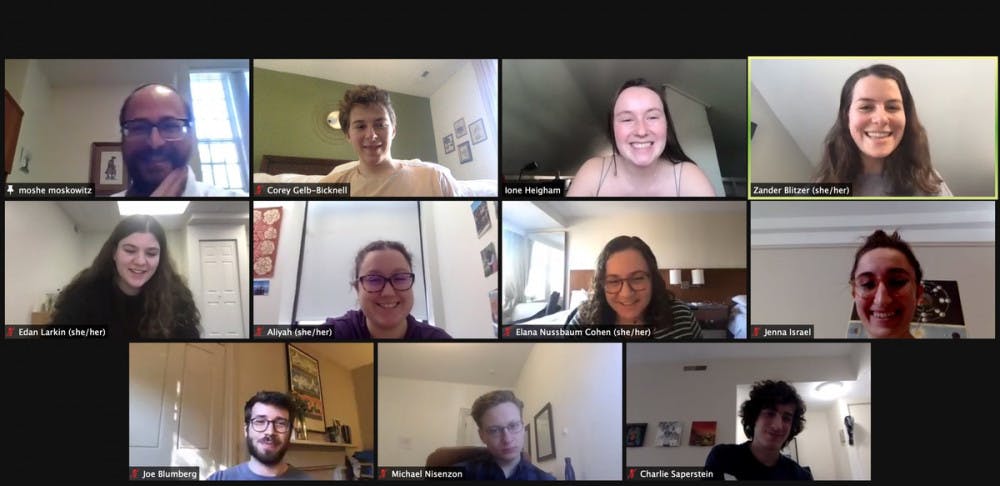“There are so few absolute statements in the Torah,” Rabbi Moshe Moskowitz said Monday to a small group of Brown community members at the Brown-RISD Hillel’s speaking event, “Prisons and Punishment in the Torah.” The Torah “doesn't allow you to be an extremist. It also doesn't allow you to just not care about things.”
The event was organized by Hillel’s Initiative on Racial Awareness and Justice, which aims to accomplish anti-racist work through the lens of Judaism. The discussion centered on how the Torah addresses punishment practically and morally, and how these teachings inform conversations about criminal justice today.
On the surface level, Moskowitz said the Torah can convey a “strong sense of justice and punishment” for those who disobey the law. “Uproot evil from amongst the Jewish people, sometimes violently,” he recalled from the text. But on closer read, Moskowitz said he had “a very hard time finding any justification for the notion of a prison system.”
Moskowitz examined the places in which punishment exists in the Torah, noting that there are very few places where physical prisons are explicitly mentioned. He also explored themes that evoke restorative justice within the Torah.
In the United States, “when somebody commits a crime, they become irredeemable,” Moskowitz said. “What does it do to our country when somebody does something wrong, and we write them off? (When) we say, ‘you will never be good again,’ and you lose all of your rights? And (when) we put you with other people that we've given up on and give you none of the tools to grow or become better or to learn to care about people?” he asked. “You have no choice but to do something that will put you right back in.”
But the “Torah sees in every human being some redemptive quality, some notion that we extend life to the last moment, because you can accomplish something that makes your whole life worthwhile in its last moments,” Moskowitz said. “We always have the ability to fix ourselves.”
He described the ancient Cities of Refuge, which offered a clean slate to those who committed involuntary manslaughter. Outside those cities, the families of victims were permitted to kill the perpetrators. But within the cities, the perpetrators were allowed the opportunity to grow.
Although ending a life has severe consequences to grapple with, “at the same time,” Moskowitz said, “the Torah is sensitive to the fact that you need the things that make you human: you need Torah, you need family (and) you need the ability to live.”
“The Talmud says that we must give you the things that are necessary for you to have a life,” he added.
Additionally, Moskowitz described how people who stole had opportunities to pay back their debt, such as through indentured servitude. The goal was to “give you the financial tools that you need to be self-sufficient so that you don't end up stealing again” after coming out of servitude, he said, noting that this system is far more forgiving and restorative than how the current justice system treats people who were formerly incarcerated. “At the end of the day, you’re meant to have a fresh start,” he said.
Moskowitz went on to address other laws regarding capital punishment, such as a rule that defendants should have the opportunity to represent themselves in court before the prosecution speaks.
“As Jews, it is our duty to be socially aware and let our Judaism and our tradition move us,” Edan Larkin ’23, a member of HIRAJ who organized the event, said. She planned the discussion so that the Hillel community could “look at what some of our tradition says and think about how we can take this forward with us through activism.”
Larkin said that the prison system in America “impacts everybody but particularly people of color.” HIRAJ hopes to organize more speaking events throughout the semester, depending upon interest.
Overall, Larkin said the speech made her feel “affirmed in the work that Jews should be doing and in the work that HIRAJ is doing.”

ADVERTISEMENT




